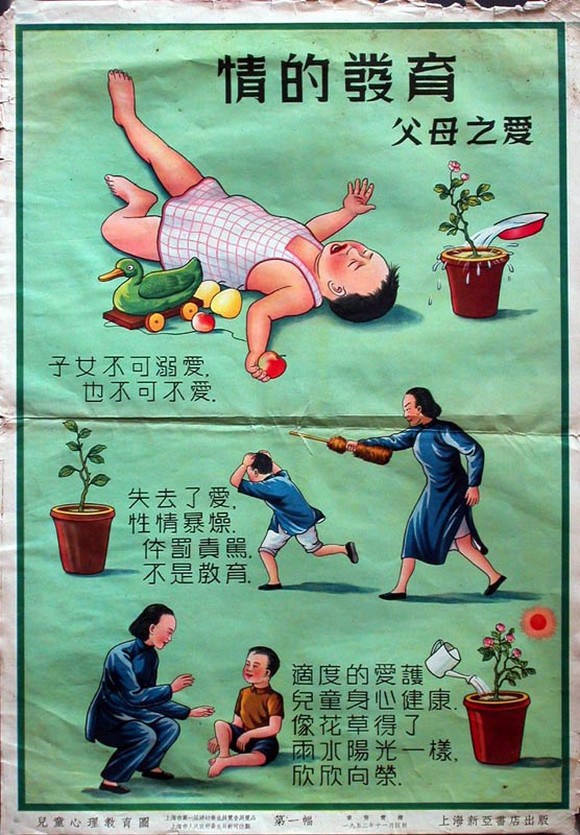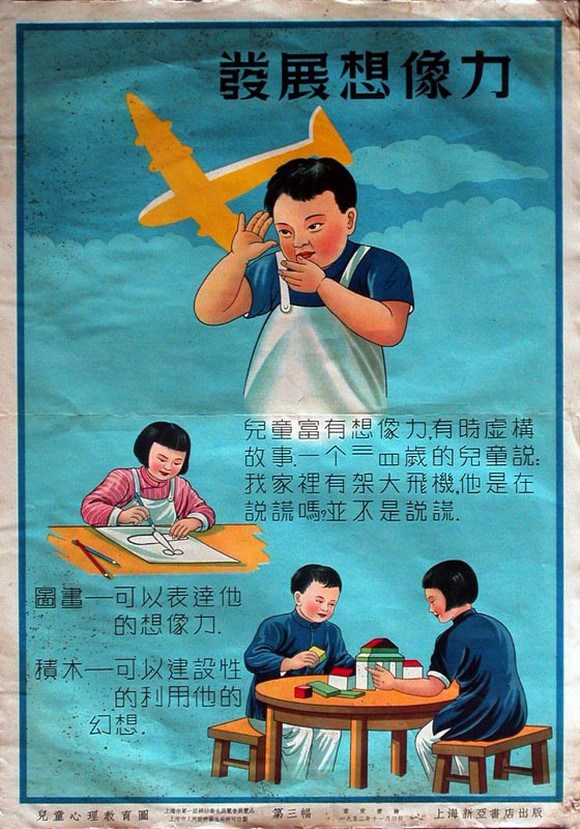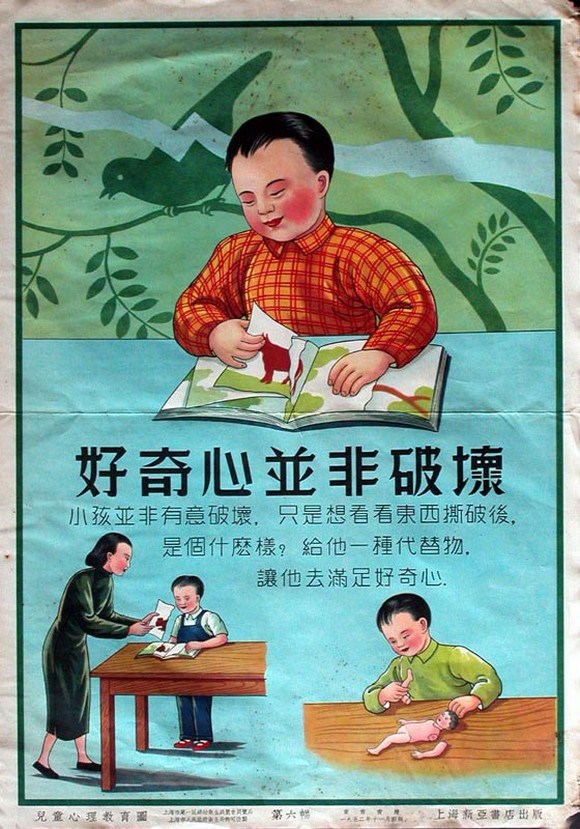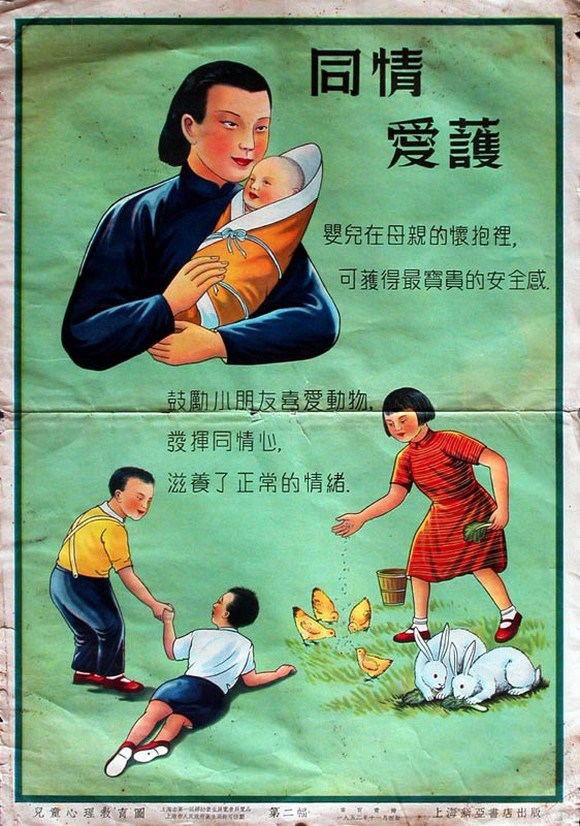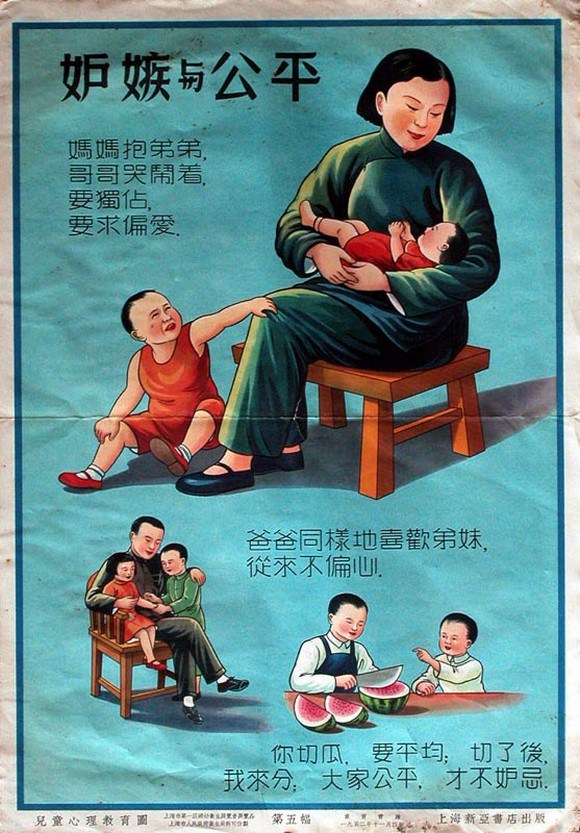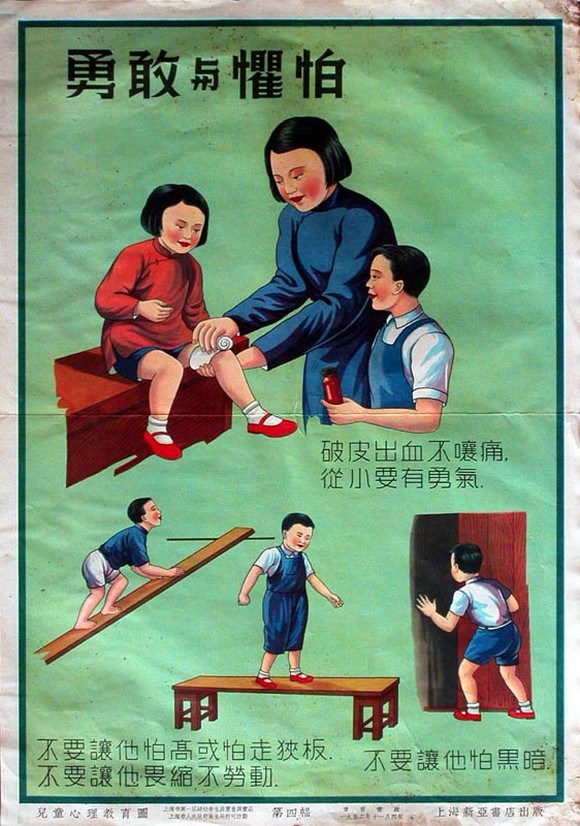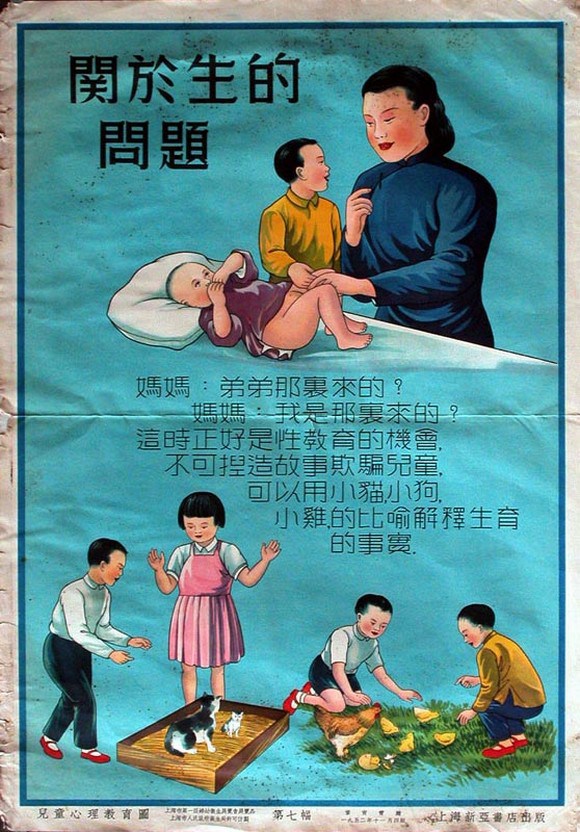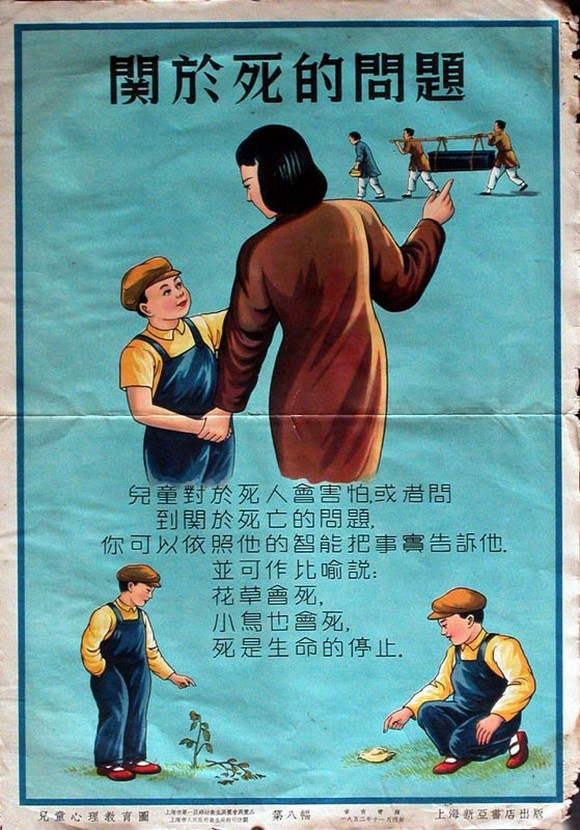Raising a child is never easy. Many parents wish that once they have a child, parenting knowledge would come naturally, but it never does. Educating our children is a lifelong learning process by itself.
A set of old-fashioned posters produced in Shanghai in 1952 provides surprisingly insightful parenting directions that are still relevant today. In them contain sound advice on loving, nurturing and educating the next generation. Check them out below, along with their English translations.
Show your love.
Show your children love and affection, but do not spoil them. Without a parent’s love, a child can become short-tempered. When he does wrong, a scolding or a beating will not help him.
With adequate care and attention, children grow up to be mentally balanced and healthy, the same way a plant needs rain and sunshine to thrive.
Help children express themselves.
Children can be very imaginative and make up stories, such as saying he has a big aeroplane at home. It is important to recognise that this does not mean he’s lying; he’s simply being imaginative. To help him express himself, encourage him to draw or play with building blocks.
Satisfy their curiosity.
A child may destroy certain objects, such as tear up a book, just to see how they end up. Offer them a substitute object in this case.
Cultivate their sense of empathy.
A baby feels the deepest sense of security when being held by its mother.
Encourage young children to love animals. This cultivates their sense of empathy.
Do not show favoritism.
An older sibling may feel jealous when he sees his mother holding a younger sibling. As parents we should not show favoritism. When cutting a watermelon, portion it out in equal sizes so that it is fair to everybody.
Teach independence and courage.
When a child scrapes his knee, there is no need to make a big deal out of it. He will learn that there is nothing to cry about. Encourage kids to not be afraid of heights, darkness and other fears.
On the topic of birth…
When a child asks “where do I come from”, it’s a good opportunity to teach him about the birds and the bees. It may be tempting to make up stories, but that’s not a good idea. Instead, explain the process of sex and birth using cats and dogs as examples.
And the subject of death.
Children may get curious or fearful about death. Explain to them that all life, even plants and animals, come to an end eventually.
Hopefully these parenting tips from China in the 1950s will lend some help in the way we teach our children. If you found them useful, share them with others below.
